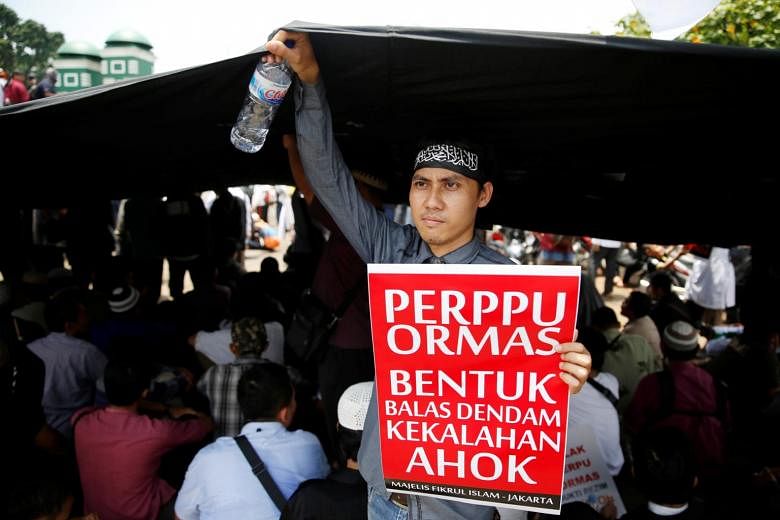JAKARTA (JAKARTA POST/ASIA NEWS NETWORK) - Intolerance has grown among middle-income Indonesians living in the suburbs, findings released by rights group Setara show.
Research conducted from July to October found that Bogor and Depok, two satellite cities in West Java to the south of Jakarta, have become hotbeds for radical preachers to spread radical and hate-fuelled messages in multiple places, such as universities and housing complexes.
The researchers gathered the data through direct observations of Islamic religious activity and covert in-depth interviews with more than 20 people in each city, ranging from preachers, housing developers, students, civil servants, former terrorist convicts and officials from the National and Political Unity Office (Kesbangpol).
"We found that intolerance and radicalism in Depok were spread through religious activities and even education institutions. They can also be found in housing complexes, which lack attention from the government," Setara researcher Sudarto said at his office in South Jakarta on Wednesday (Nov 1).
Sudarto found that sermons given in housing complexes generally promoted jihad and encouraged people to prepare for the "great war."
"Of course, they also conveyed hate-fuelled messages against believers of other faiths," Sudarto said, adding that such gatherings were held once a week, on the weekends.
Activities held by student associations and Islamist groups at the University of Indonesia (UI) often spread hatred against minority groups, such as lesbian, gay, bisexual and transgender (LGBT) people and Ahmadis.
An Ahmadiyah mosque in Sawangan, Depok, was sealed in June by authorities following protests.
Sudarto reported similar findings from the Hidayatullah School of Economics (STIE), where its students were encouraged to take part in a demonstration against then Jakarta governor Basuki "Ahok" Tjahaja Purnama, who is a Christian of Chinese descent.
After a series of large-scale rallies, Ahok was found guilty of blasphemy.
"The Depok administration does not have any programs or allocate any funds for deradicalization, because it thinks there is no such problem and that the counter radicalisation program is solely the responsibility of the central government," Sudarto said.
In Bogor, the spread of radicalism and intolerance was also centred on universities and houses of worship, said Muhammad Syauqillah, who carried out research in the city.
"In Bogor, the situation is worse than Depok. It has become an incubator of terrorism," he added.
The country has recorded 38 terror acts since 1980. Eighteen of the terror acts involved people who had lived, transited or built networks in Bogor, he said.
"The close proximity of Bogor to the capital makes it a strategic place and highly accessible for those who have been trained abroad to gather. The vast farmland is also favorable for them to hold military training," he said.
West Java has been ranked the least tolerant province for the last couple of years, according to the National Commission on Human Rights (Komnas HAM).
In March, members of three Christian congregations had their Sunday services interrupted by protesters at the Griya Parung Panjang housing complex in Parung Panjang district, Bogor regency.
The protesters said members of the congregations had violated regulations by holding services inside a housing complex, disregarding the fact that they were not allowed to build a place of worship in the area.
They held the services inside a house because their attempts to build a church had been repeatedly denied, said Hasudungan Panjaitan, a priest with the Parung Panjang Batak Protestant Church.
Setara deputy chairman Bonar Tigor Naipospos said the interactions of middle-income people living in satellite cities were often limited to religious gatherings.
"This is where radicalism infiltrates," he said, adding that the moderates and liberal Muslims had been labelled as anti-Islam.

